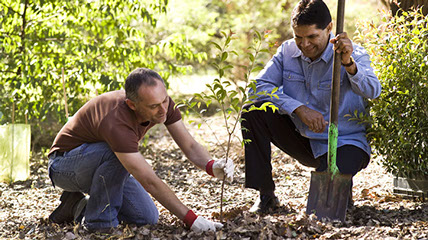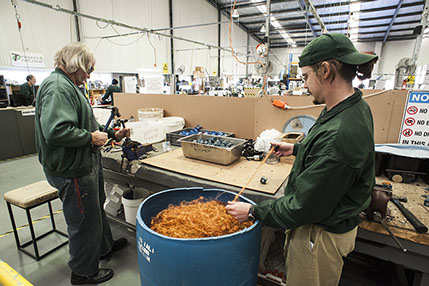CARING FOR OUR ENVIROMENT
Waste is everybody’s responsibility. All CSI commercial business units
throughout NSW take a proactive approach to caring for the environment. CSI‘s
quality management strategies extend through the production and waste management
of its business units, with regular reviews conducted to further reduce waste.
CSI operations are encouraged to identify, classify, segregate and transport
their waste to comply with legislation and perform best practice.
Offenders are required to comply with any reasonable instruction
and cooperate with any reasonable policy or procedure relating to the use,
handling and storage of waste, including hazardous chemicals at the
workplace.
CSI waste management strategies focus on training staff and
offenders in its effective and efficient site operations. CSI provides work and
training to inmates in a wide variety of commercial and agricultural activities
in correctional centres operating afforestation camps, market gardens and
nurseries.
Trade waste
is managed by:
• ensuring waste from grease traps does not go directly into
sewerage
• regular pumping of systems
• conducting regular testing,
monitoring and maintenance
• implementing emergency response procedures
•
implementing procedures to protect against eco-spills.
Wherever practicable, cardboard and metal scraps are recycled,
wood scraps are mulched, plastic containers for chemicals are reused by
suppliers, and food wastes from inmates are further reduced by worm farming and
composting.
CSI not only upholds its duties as an environmentally
responsible corporate citizen, but is also a major contributor to some of the
State’s major environment protection projects. Walking along the foreshores on
the NSW South Coast and enjoying scenery unspoilt by exotic weeds, or having a
picnic on the banks of the Parramatta River in Sydney, is due to the eradication
and clean-up work of offenders, as is the replanting of river bank vegetation
and native flora supervised by department staff
 Community Projects inmate replanting native flora supervised by a department
staffer. |  We are in partnership with the private sector in recycling product components,
rather than contributing to land fill. |

